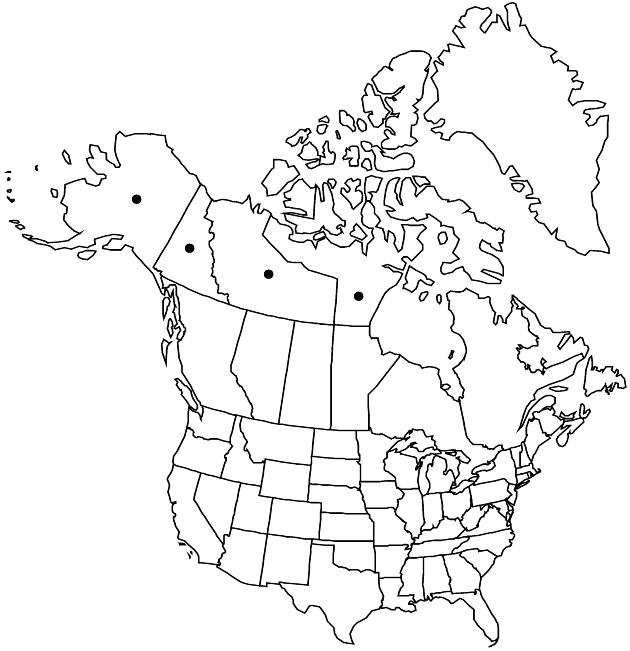Erigeron yukonensis
Bull. New York Bot. Gard. 2: 185. 1901.
Perennials, 10–30(–40) cm; rhizomatous, fibrous-rooted, caudices or rhizomes sometimes resembling taproots, multicipital. Stems erect (often purplish proximally), sparsely to moderately hirsute to villoso-hirsute, eglandular. Leaves basal (persistent) and cauline; proximal blades narrowly oblanceolate, rarely oblanceolate-obovate, (10–)40–160 × 2–8 mm, mid and distal narrowly lanceolate, reduced, margins entire, faces sparsely hirsute or glabrous, eglandular. Heads 1–2(–4) (from branches at midstem). Involucres 6–10 × 12–19 mm. Phyllaries in 2(–3) series (linear-lanceolate, apices linear-acuminate), sparsely to moderately woolly-villous (hairs whitish, flattened, with clear cross walls), sometimes sparsely minutely glandular. Ray florets 42–82; corollas white to pink or pink-purple, 10–15 mm (mostly 1–2 mm wide), laminae coiling. Disc corollas 3.8–5.2 mm. Cypselae 1.7–2 mm, 2-nerved, faces strigose; pappi: outer of setae or scales, inner of 15–20 bristles.
Phenology: Flowering (Jun–)Jul–Aug(–Sep).
Habitat: Rocky sites and meadows, near timberline and above
Elevation: 2800–3200 m
Distribution

N.W.T., Nunavut, Yukon, Alaska.
Discussion
Selected References
None.